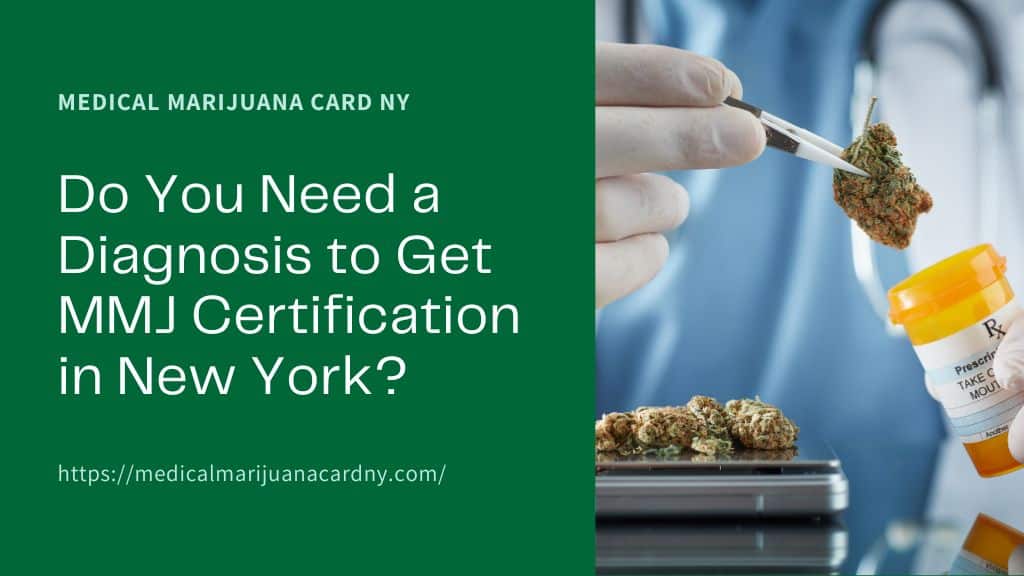Medical Marijuana for Chronic Pain Management is increasingly recognized as an effective treatment option. A recent study revealed that a significant number of patients perceive medical cannabis as effective in managing chronic pain. These patients reported not only reduced pain intensity but also improvements in physical and mental functioning, along with a decrease in the use of pain and psychiatric medications.
However, they also encountered challenges such as finding the right product or dosage and dealing with side effects. This underscores the importance of further research to systematically assess these aspects for better understanding and management of chronic pain using medical cannabis.
Table of Contents
ToggleUnderstanding Medical Marijuana for Chronic Pain Management
How Can Medical Marijuana Alleviate Chronic Pain?
Medical marijuana (MMJ) is increasingly recognized as a viable option for chronic pain management. It has been observed that patients using MMJ for chronic pain often reduce their reliance on traditional painkillers, including opioids. A significant number of patients report a reduction in prescription opioids and other pain medications by more than 50% when using cannabis for pain management. This shift indicates MMJ’s potential in alleviating chronic pain symptoms.
However, it’s crucial to note that MMJ use sometimes leads to reduced engagement in non-drug therapies like physical therapy, meditation, and cognitive behavioral therapy, which are also effective in managing chronic pain.
What Are the Active Components in Medical Marijuana That Help with Pain?
The primary active compounds in MMJ that contribute to its pain-relieving properties are cannabinoids, specifically Tetrahydrocannabinol (THC) and Cannabidiol (CBD). THC, the psychoactive component, binds to receptors in the brain and central nervous system, modulating pain perception and providing relief from various pain types, including neuropathic, inflammatory, and nociceptive pain.
CBD, known for its therapeutic benefits without the psychoactive effects, interacts with several targets in the body, including receptors involved in pain and inflammation modulation. These interactions suggest that cannabinoids can effectively manage different pain sources, offering an alternative to conventional pain medications.
Which Types of Chronic Pain Conditions Are Most Effectively Managed by Medical Marijuana?
A comprehensive review of clinical trials on cannabis administration for pain relief in adults highlights that MMJ is effective in reducing various pain types, including neuropathic pain, cancer-related pain, and conditions like fibromyalgia. The study found that the majority of trials showed significant pain reduction following cannabis administration. However, more extensive, high-quality research is needed to fully understand the optimal usage of MMJ for pain management.
Medical Cannabis Vs. Opiates
When comparing MMJ and opiates for chronic pain management, MMJ is emerging as a preferable alternative due to its potential benefits and lower risk profile. While opiates have been a conventional treatment for pain, their use carries a high risk of addiction and other severe side effects. MMJ, on the other hand, offers a safer profile with fewer risks of dependency and overdose.
Medical Marijuana in New York’s Healthcare System
How Does New York State Regulate the Use of Medical Marijuana for Chronic Pain?
New York State has implemented specific regulations for the use of medical marijuana (MMJ) in treating chronic pain and other medical conditions. Any healthcare provider licensed to prescribe controlled substances in New York and who has completed a required course on medical cannabis can certify patients for MMJ use.
Once certified, patients are automatically registered in the Medical Cannabis Program without the need for a separate registration ID card. Their certification includes a registry ID, which, along with a government-issued photo ID, allows them to purchase medical cannabis from licensed dispensaries in the state.
What Legal Changes in New York Have Impacted Access to Medical Marijuana for Pain Management?
Significant legal changes have influenced the accessibility of medical marijuana for pain management in New York. Key milestones include the initiation of New York State’s Medical Marijuana Program in 2014 and the passing of the Marijuana Regulation and Taxation Act in 2021. These legislative developments have not only legalized adult use of cannabis but have also facilitated the legal sales of medical marijuana. The process of obtaining medical marijuana has been simplified, with automatic registration for patients certified by their healthcare providers.
Patient Experiences and Case Studies
Who Has Benefited from Medical Marijuana for Chronic Pain in New York?
Numerous patients in New York suffering from chronic pain have benefited from medical marijuana. The state’s Medical Cannabis Program has aided countless New Yorkers in finding relief from various painful conditions. Patients certified for medical cannabis have reported significant improvements in pain management and overall quality of life.
Why Do Some Patients Prefer Medical Marijuana Over Traditional Pain Medications?
Patients often prefer medical marijuana over traditional pain medications for several reasons. Medical marijuana is perceived to be less addictive and have fewer side effects compared to opioids and other painkillers. Moreover, patients find MMJ effective in not only managing pain but also in improving other associated symptoms like anxiety and sleep disorders. The ability of MMJ to target different aspects of chronic pain, including the emotional and psychological components, makes it a more holistic treatment option for many.
Clinical Evidence and Research
What Does Current Research Say About the Efficacy of Medical Marijuana in Pain Management?
Recent studies have demonstrated that medical cannabis (MC) is beneficial for the management of various symptoms related to chronic nonmalignant pain, along with conditions like cancer, headaches, migraines, and psychological disorders such as anxiety and PTSD.
The primary active ingredients in cannabis, 9-Tetrahydrocannabinol (THC) and cannabidiol (CBD), have been identified as key modulators of these symptoms. They work through the endocannabinoid system to decrease nociception (pain perception) and the frequency of symptoms.
However, research within the USA remains limited due to regulatory classifications. Despite these limitations, current findings suggest that MC provides effective pain management and could be a convenient and efficient option for patients suffering from chronic nonmalignant pain.
How Are New Studies in New York Shaping the Understanding of Medical Marijuana for Chronic Pain?
In New York, as in other states, the shifting legal landscape and increasing accessibility to medical marijuana are likely to influence ongoing and future research in this area. New York’s progressive stance towards medical marijuana, especially after the legalization of adult-use cannabis, opens avenues for more comprehensive studies that could further our understanding of its efficacy in pain management.
Challenges and Considerations
What Are the Common Challenges Faced by Patients Using Medical Marijuana for Pain in New York?
Patients using medical marijuana in New York face several challenges. The primary issues include navigating the legal landscape, understanding dosing and the most effective strains for their condition, and managing the cost of medical cannabis. Given the variability in pricing and the lack of standardized dosing protocols, patients might find it challenging to consistently manage their pain effectively.
How Can Patients Navigate These Challenges for Better Pain Management Outcomes?
To navigate these challenges, patients should engage with healthcare providers who have completed the required training in medical cannabis. This ensures they receive accurate, up-to-date advice tailored to their specific condition. Patients should also stay informed about the legal and regulatory changes in New York’s medical marijuana landscape to understand their rights and responsibilities. Furthermore, exploring financial assistance programs offered by registered organizations can help manage the costs associated with medical cannabis.
Medical Marijuana Recommendation Process in New York
How Do Patients in New York Obtain a Medical Marijuana Recommendation for Chronic Pain?
To obtain a medical marijuana recommendation in New York, patients need to consult with a healthcare provider who is authorized to prescribe controlled substances in the state. This provider must have completed a specific course on medical cannabis, as required by the New York State Office of Cannabis Management (OCM). Once a healthcare provider deems medical cannabis suitable for a patient’s condition, they can certify the patient for medical cannabis use.
What Are the Steps Involved in Getting a Medical Marijuana Recommendation in New York?
- Consulting a Healthcare Provider: Patients should first consult with a healthcare provider who is registered with the New York State Department of Health and is authorized to prescribe controlled substances. Many providers also offer telemedicine services for convenience.
- Healthcare Provider Certification: Upon consultation and assessment, if the healthcare provider concludes that the patient’s condition could benefit from medical cannabis, they will issue a certification. This MMJ certification will include a registry ID number.
- Automatic Registration: With the recent changes in March 2023, patients are automatically registered in the New York Medical Cannabis Program upon receiving their certification. There is no longer a need for a separate registration process.
- Purchasing Medical Cannabis: Once certified, patients can use their certification, along with a valid government-issued ID, to purchase medical cannabis from registered dispensaries in New York.
- Renewal of Certification: The medical cannabis certification is subject to renewal. Patients should consult their healthcare provider to extend the certification’s validity before it expires.
Conclusion
As of March 2023, the process for obtaining a medical marijuana recommendation in New York has been simplified. The elimination of the need for a separate state registration and the introduction of automatic registration with a healthcare provider’s certification streamline the process, making medical marijuana more accessible to those in need. This development represents a significant step towards accommodating the growing acceptance and use of medical cannabis for pain management and other medical conditions in New York.
Resource
https://pubmed.ncbi.nlm.nih.gov/36897501/





